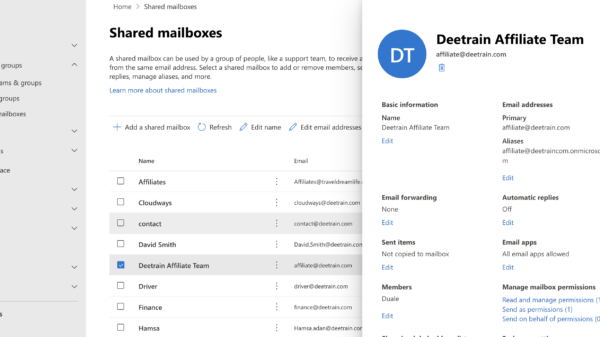
Regardless of the fact that IT is one of the most quickly extending job sectors, it is considered to be one of the most stress-introducing sectors as well. According to a new survey, stress level in IT is rising in the recent years.
Most IT workers relate stress strongly to their jobs. A recent survey report published in 2015 reported IT to be one of the most stressful job sectors: almost 78% of the IT professionals have described their job as stressful, that is almost 20% more than previous years.
However, stress in IT directly relates to the nature of the job, organization, roles and responsibilities of the workers. It is important to know which factors relate to stress in IT, that you will get to know in the following description.
Is Working in IT Actually Stressful? What do IT Professionals have to say about it?
Working in IT can actually be stressful due to increasing challenges and learning requirements it brings out daily. Its high demand in programming, excessive pressure on work and target accomplishment is something that makes it stressful for many people in the field. “Everyone gets a balanced work-life except the helpless IT fellow” says Sergio Galindo, a head supervisor at GFI software.
A portion of the reasons for working environment stress might be credited to quantifiable conditions, specifically uncompensated extra time. IT work has for quite some time been related to pressure, the aftereffect of bringing in the evening, forceful cutoff times, angry clients, unremarkable assignments, and any startling issues are some other reasons why people feel stressed while being in the field.
Of more than 200 IT experts were asked about their job, in an experiment to reveal underlying causes of stress in IT jobs: almost 50% of the respondents announced: “missed social capacities due to invading issues and tight cut-off times” is the main reason for them. Another 40% said they missed time with their family, and an equivalent rate revealed loss of rest as the main cause. Almost 30% said they experienced pressure-related ailments.
When you’re in a role that you can do with your eyes closed could make you feel that the easiest task can be so difficult to complete. This would be all related to not enjoying the things that you do.
When working as an IT professional whether working as a support engineer, providing technical solutions, or implementing solutions, you’re always required to bring your A-game. In an industry where technology is ever-changing and ensuring that you’re constantly upskilling and keeping your skills relevant can be very difficult and stressful.
When working in fields like cloud engineering, infrastructure, and software, new updates and changes are always being made and you’re responsible for updating documentation or adjusting systems and/or services for a given organization.
Other stressful points for engineers that are not being fully supported by their team/line manager with technical duties or not receiving appropriate training.
It is indeed very true that working technology requires you to think on your feet and finding most of the issues and solutions yourself.
However, the way configurations have been set up within an organization needs to be clearly documented and when this is not possible, most engineers will become stressed as they would have think on their feet and find a solution themselves which sometimes takes days.
What factors contribute to IT Stress?
It’s difficult for the innate, high-hazard nature of certain positions to be at fault for undeniable degrees of Stress and burnout. There are different reasons why somebody may be gnawing their nails at work.
Assessing the level of stress that can be endured when working in IT entirely depends on several factors. It could be related to the following:
Team function
Team function can be one of the biggest stresses when it comes to working in IT. This is because you’re usually working on a variety of different projects which usually requires working very closely with your team and making sure everything is in order.
Now, if your fellow co-worker likes to be alone then that could be a potential problem especially if you need to frequently need to communicate around project work. You even may be in a particular situation where the co-worker set up a whole environment and they are the only one who knows how to support it.
If your unable to get documentation or understanding of how they built this system, you can sort of see why some people may complain that the Team function is broken and can cause them stress.
In short, the team function has to be rock solid and they must be able to have soft skills as well as technical to have a really enjoyable work environment and culture.
Company culture
The company culture can cause some form of stress for some people. These include people who love having a social life and have the ability to really get stuck in with other members of the organization.
IT has a bad stereotype where no one likes to do fun things and they just want to be behind a computer screen all day which is totally FALSE.
If the company culture is not good and employees just work then it could cause some stress becomes there is no reward system or even social events that can keep employees motivated for the company success and achievements.
Projects
The biggest one that causes many IT professionals to be stressed surrounds the level of projects they have to complete in such a short amount of time.
For more specialized teams, it is relatively normal for them to implement new solutions into place. However, it is common that they are overworked when it comes to handling too many projects at once which makes them overworked and undervalued.
This usually causes a lot of stress and eventually leads to burnout.
There is also the other part of the spectrum for more junior members of staff. They have tasks assigned to them but they have the issue of actually understanding the tasks, taking time to read through the documentation, and then completing the projects.
This is sometimes way too much for them. Not being able to understand the task is one thing and trying to get help is sometimes impossible in IT because other senior members of staff are way too busy or have very limited time to go through. Usually, they have to go through a lot of documentation finding and piecing things together, and sometimes I can be wrong. In this case, IT can be very stressful for them.
However, it is also important to say that a lot of organizations have a structured training program and a wide range of documentation for their staff to go through to maximize their success in solving problems and becoming a really good engineer/architect.
Long hours
As part of being an IT professional, you may have to work long hours including on-call and weekends depending not the organization. This most definitely depends on the role you have and the level of responsibility that is assigned to you.
Usually, the working hours for an engineer are 9:00 – 17:00 with no additional out-of-hours work. With some organization, they may require that you may time to time work out of hours and weekends if users need help or systems break.
Processes and procedures
You may be very surprised at this but most engineers are used to a very process-focused environment. When they find themselves in an environment where there is no process or procedure in place especially for identity access management it could cause a lot of stress because they may be going against GDPR and violating a lot of policies that were not ok for them in their old company.
Not passionate enough
Another stress point is that the engineer is not passionate about IT anymore. This could be related to many factors or the ever-changing technologies they are dealing with.
When your not passionate about something, the littlest of the task will look like a mountain to complete. This can cause a lot of grief and issue. This is sometimes the case for many engineers.
Identify Stress Causes
Before you can handle stress, you must first understand what generates it.
Time stress
Time stress arises as a result of a fast-paced work environment with unreasonable deadlines. When you struggle from this sort of rush sickness, your creativity, relationships, and overall quality of life suffers.
Anticipatory Stress
Anticipatory Stress refers to anxiety about the future. It might be because of a specific occasion, such as a report you’re supposed to make. Alternatively, you may have a more broad fear of the future. Many people are concerned about the security of their jobs.
Situational Stress
Situational Stress is triggered by circumstances over which you believe you have no control. These can be acute occurrences, such as a sudden breakdown of a supply line, or long-term difficulties, such as a sense of lack of autonomy or direction in your work. Workloads that are too heavy also fall into this group.
Encounter stress
Social interaction causes encounter stress. Bad leadership, bullying, and dealing with angry or unpleasant individuals can all cause encounter stress.
Millennials Role
The explanation that Millennials might be less ready to deal with pressure is that they connect with others face to face, undeniably not exactly different ages, since the vast majority of their social communications have experienced Internet-based, safe distance contact, Blair said.
This age has likewise been shielded from some genuine circumstances by their folks, “so the working environment will, in general, be more distressing for them than for other people.”
Another chance is that the end-client Millennials are expanding the feelings of anxiety for IT laborers.
Micromanagement in IT
At the point when each choice and email is confirmed by an IT boss before any move can be made, it’s anything but a great deal of time, mainly when quality work can be accomplished without steady registration.
For a fresh recruit, expanded checking might be essential for the initial few months of their business; however, when it turns out to be necessary for the work culture, it can harm the resolve of representatives.
Interference
For a few, being “in the zone” and finishing tasks consecutively feels better. In any case, seemingly insignificant details like noting an instant message or visiting with a colleague intrude on efficiency, which can put you behind in coding, which expands your degree of Stress.
Downplaying interferences make more opportunities for you to remain on track while working on an IT project and top of your responsibility.
Inadequate communication/failure to provide feedback
A chief/client who doesn’t furnish you with any input – fortunate or unfortunate – can make you stress on the off chance that you’re working hard. Also, that ongoing concern can place a sizable imprint on efficiency.
Having clear and open correspondence on the two sides can wipe out disarray and any worries. However, on the off chance that your chief isn’t one to impart input to you, checking in with the person in question and posing inquiries about how you’re doing and where you can improve can help set your brain straight.
Low pay and little possibilities for promotion
Having some work that doesn’t pay well is distressing for various reasons. Not exclusively is there the consistent strain of not gathering your monetary obligations, yet occupations with low pay rates and no space for progression cause laborers to feel underestimated, sad and discouraged.
In a recent study, we discovered an IT worker usually gets stressed due to a lot of work but gets a low salary.
Stress that is good for you vs. Stress that is bad for you
Not all Stress is inadequate; instead, it exists on a continuum. According to Amsellem, “healthy stress” can encourage you to complete daily activities and accomplish goals. Unhealthy Stress, on the other hand, causes a slew of issues.
Stress that is bad for you
When anxiety takes over your everyday thinking, it’s an indication that the degree of stress you’re experiencing is detrimental to your health. Chronic stress has been linked to the following conditions, according to Healthline:
- Blood pressure that is too high
- Immune system dysfunction
- Heartburn
- lInsomnia or exhaustion
- Putting on weight
- Periods missed
- ED (erectile dysfunction)
- Aches in the head and stomach
- Having difficulty concentrating
- Irritability
If chronic stress causes burnout, you may lose interest in your profession and interests, as well as become socially distant.
Burnout — mental, emotional, and physical weariness – is the result of managing stress for an extended period.
How to Deal with Stress?
If you are under a lot of stress at work, finding constructive methods to deal with it relies a lot on the nature of your employment.
You may take suitable actions to control your stress once you’ve understood the elements that contribute to it.
Manage your time efficiently
Nothing’s more baffling than a preliminary daily schedule, yet in some cases, it’s anything but us; it’s the rundown.
For your next appointed venture, as opposed to adding the whole task to your daily schedule, think about the extent of the undertaking, then, at that point, focus on the essential components of the venture and divide those components into little, sensible tasks that can be finished toward the end of every day.
Utilizing this procedure can help you turn in projects that are on schedule, blunder-free, and you will not be fatigued when it’s set.
Set your limits
Today, it’s simple for workers to follow you home. Our telephones can keep us fastened to the workplace on the off chance that we don’t define clear limits. On the off chance that an email or call comes in during the ride home, do whatever it takes not to respond to it. Taking your work email off your telephone or having an assigned phone for work that you can kill by the end of the day’s and allows you an opportunity to re-energize, giving you the energy and concentration you need when it’s time to focus on work.
Find Ways to Remain Calm
Stress can regularly make you quit relaxing for a few seconds, even though you may not understand it; at the point when you’re feeling focused, practice profound breathing activities.
Profound, moderate breathing floods your body with oxygen, easing back your pulse, loosening up your muscles, and assisting you with centering.
You could also wish to practice yoga or meditation after work; these are great stress-reduction techniques.
Successive day-by-day breaks and regular excursions are likewise significant for diminishing work pressure. Indeed, even a long end of the week can help you to de-stress following an extreme week.
At the point when you do enjoy a reprieve or take some time off, go home to work. Taking a “working get-away” (or continually browsing your messages and messages while you’re gone) will not give you the time that you need to rest and re-energize.
Increase Your Independence
Autonomy is the ability to choose how to complete your tasks. Professionals in low-autonomy positions frequently suffer more Stress and unhappiness than those in higher-autonomy ones.
Discuss your present goals or initiatives with your IT Project manager; when appropriate, request the latitude to select how you will achieve these objectives. Working remotely one day a week, for example, or deciding who you want to collaborate with on your next assignment are examples of this.
Use work-creating methodologies to reshape your job and to utilize your qualities and interests more readily. This can prompt more noteworthy usefulness and less pressure. You may likewise secure that position, creating added interest and importance to your work.
Priorities must be managed.
It is also critical to determine which actions will have the most impact. Try to decide which jobs are worth your time and which you can comfortably assign or drop.
If you’re managing a project that appears to be too large, divide it into smaller pieces. This helps you focus on one task at a time rather than tackle everything at once.
Regular exercise is essential.
Regular exercise is one of the most effective methods to cope with demanding work. The daily routine can help you manage stress and improve your quality of life, creativity, Intelligence, and efficiency.
You may incorporate exercise into your schedule in various ways, like waking up somewhat earlier and exercising before work, going for a stroll during your lunch break, or using a treadmill desk while at work.
Take regular breaks to get up and move about to give your mind a rest. Take numerous five- or ten-minute walks throughout the day. It may not seem like much, but this activity and clean air will allow you to rest and code more effectively.
Remember that any additional mobility in your IT work will help you manage stress and live a healthy life because IT jobs require you to sit at a desk all day.
Consider the positive
Regardless of the type of work you do, your attitude significantly impacts your level of Stress. But especially in IT, perspective matters a lot.
You have the option of approaching jobs, responsibilities, and people with a bad attitude, or you may close your work and interactions with a positive perspective. Even though the quantity of labor is the same, the effect on your fitness and well-being is significant.
When you see yourself falling into a negative mindset, attempt to examine your assumptions, think positively instead, use rational, fact-based reasoning to counteract your negative ideas, and consider utilizing affirmations to enhance your personality.
Examine Your Skills and Resources
Take a look at your work. What are your biggest annoyances? Where do you waste the most time? What are the bottlenecks in your system?
These circumstances frequently indicate a lack of techniques, resources, developing skills, or assistance – all of which can add to workplace stress.
You must constantly evaluate your skill set, especially if your business is creating new methods of working. It would help if you also had the proper equipment and know-how to utilize it.
Make a list of everything you’ll need. Inform your boss; the IT project manager, of your deficiencies and describe how these things will increase your productivity and efficiency. If your supervisor cannot offer the resources you require, consider how you might negotiate for them or obtain them on your own.
Find Purpose in Your IT Work
What is your favorite aspect of your IT job? What gives direction and significance to your work?
These questions may appear easy, but they are crucial. If you understand what gives your work significance, you are more likely to generate intrinsic drive.
This drive stems from the realization that what you do is valuable in and of itself. It can help you overcome the stress of your job and create resilience when you’re feeling low.
Is an IT job worth the effort?
Experiencing overwhelming stress is not at all the reason to ward off the IT jobs as not worthy of any efforts. They can provide you with much chances of growing both personally and professionally, and also aid you looking ahead to the better and learned future.
To work in an IT field, you have to stay up-to-date; you have to be constantly researching; if you want to be relevant in IT, you need to learn continuously.
If you are always learning, and we know it can be stressful but always learning and staying updated in your IT field makes the career a lot easier because you are not struggling with these new technologies.
The other part of an IT career is being helpful with the new technologies; you are helping people with your skills fixing their issues.
What jobs are less stressful
Helpdesk & Desktop Support
Helpdesk and desktop support is by far the less stressful role you would face. This is because most tasks and issues have been solved before and therefore everything would be documented or very easy to find on the internet.
This is more a customer service role than a more technical one. Though working with technologies and understanding how to troubleshoot effectively is a MUST, but more aspects of the job can be taught on the job.
Just being enthusiastic and hardworking is sufficient to succeed in this role and therefore the stress levels here is very low.
Network Engineering
Networking engineering is classed as a specialized role but networking technologies rarely change. Once you learn CCNA and the fundamentals of firewalls and on-the-job training you’ll pretty much set your foundations and everything else will be a bonus.
Working hard in this field is essential to your success and you will find the fruits when you start to get involved in more projects.
Specialized roles
Specialized roles such as Cloud engineer, DevOps, Software development, M365 can be very stressful if handling multiple projects at once, however, when you zero in on a project and understand it well you can be very happy with that job.
For example, if you focus only on M365 particularly with Intune and Windows 10, and have a good foundational knowledge of those technologies, all tasks, and projects that are assigned will be a walk in the park as long as the projects are not massive or a lot of them.
Dealing with stress in an IT role
Communicate your frustrations with your line manager
When you are feeling frustrated and feel that the work your currently doing is becoming overwhelming then it might be the right time to speak with your manager. Your manager is there to support and guide you in your most toughest time. Good managers listen to your problems and to find appropiate solution to your problems.
This advice is accross the board in terms of monetary compensation, team disputes, mental health issues and the list goes on. The simple rule is if you have a problem at work be sure to speak and communicate with your manager first and then any other relevant people within your business as an escalation point.
Speak to HR
Sometimes speaking with HR about your issue is a good way forward to solve your problems professionally and confidentially. It is a good idea to atleat have a discussion if you failed to communicate effectively with your manager and your looking for other solutions to solve the problem you have. This may be being of stress leave for a while or any other options that you can take to alleviate the stress your currently going through.
Look for other opportunities
Sometimes, the job that we have may not help us and we are just unahppy with it. It is completely okay to look for a role that requires the same opprotunity and it is very common to get a salary increase in these circumstances when moving jobs.









